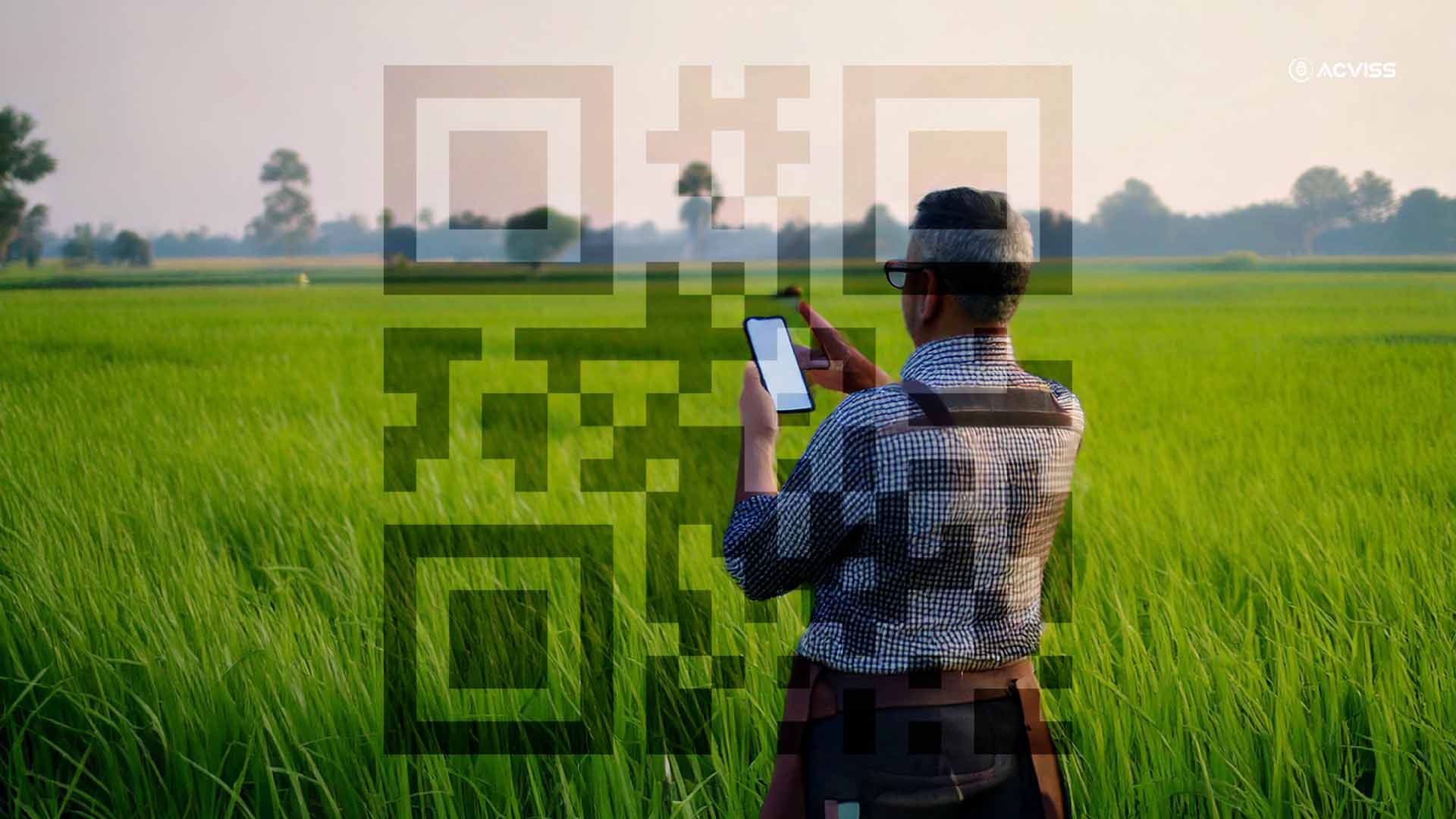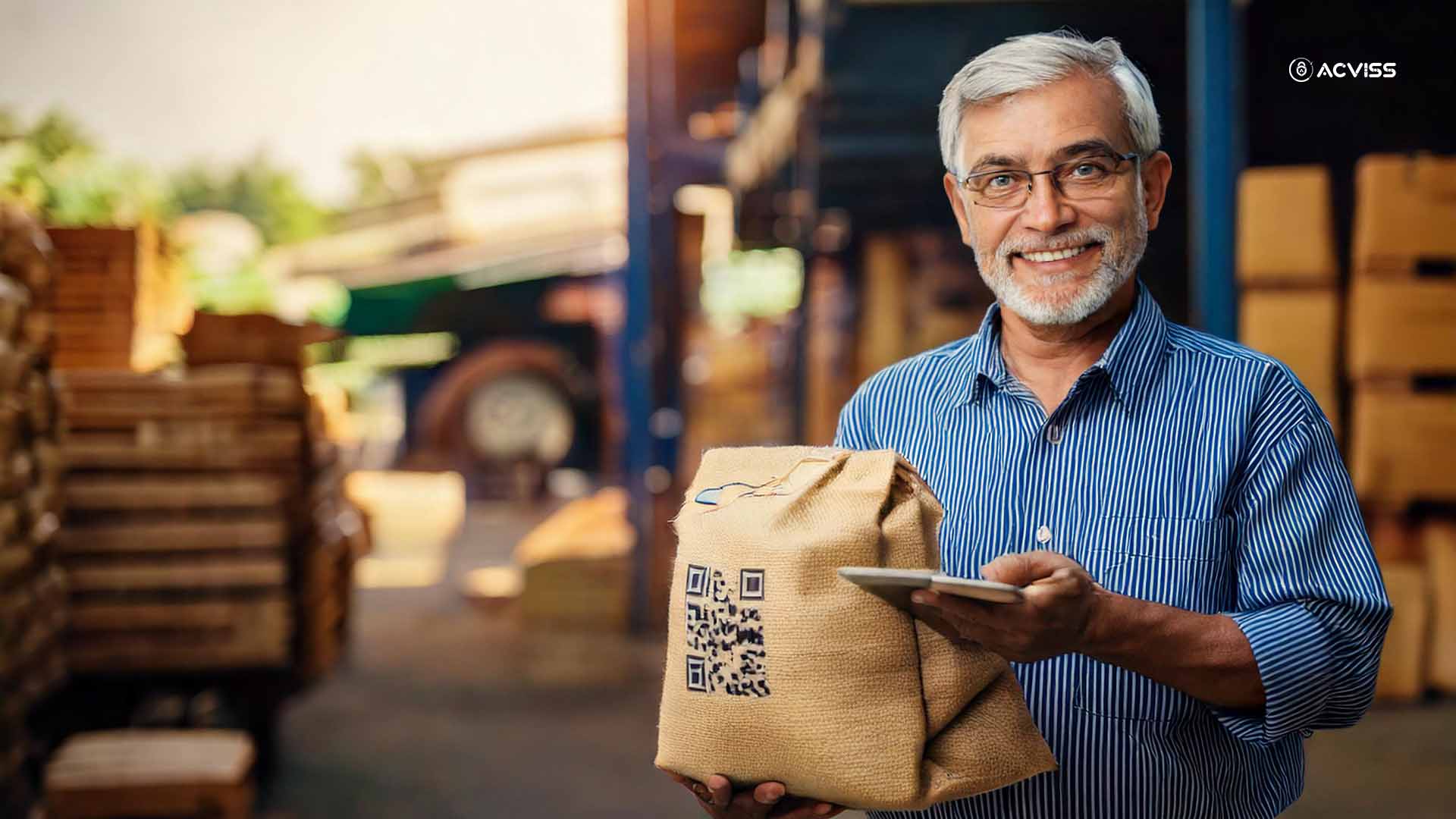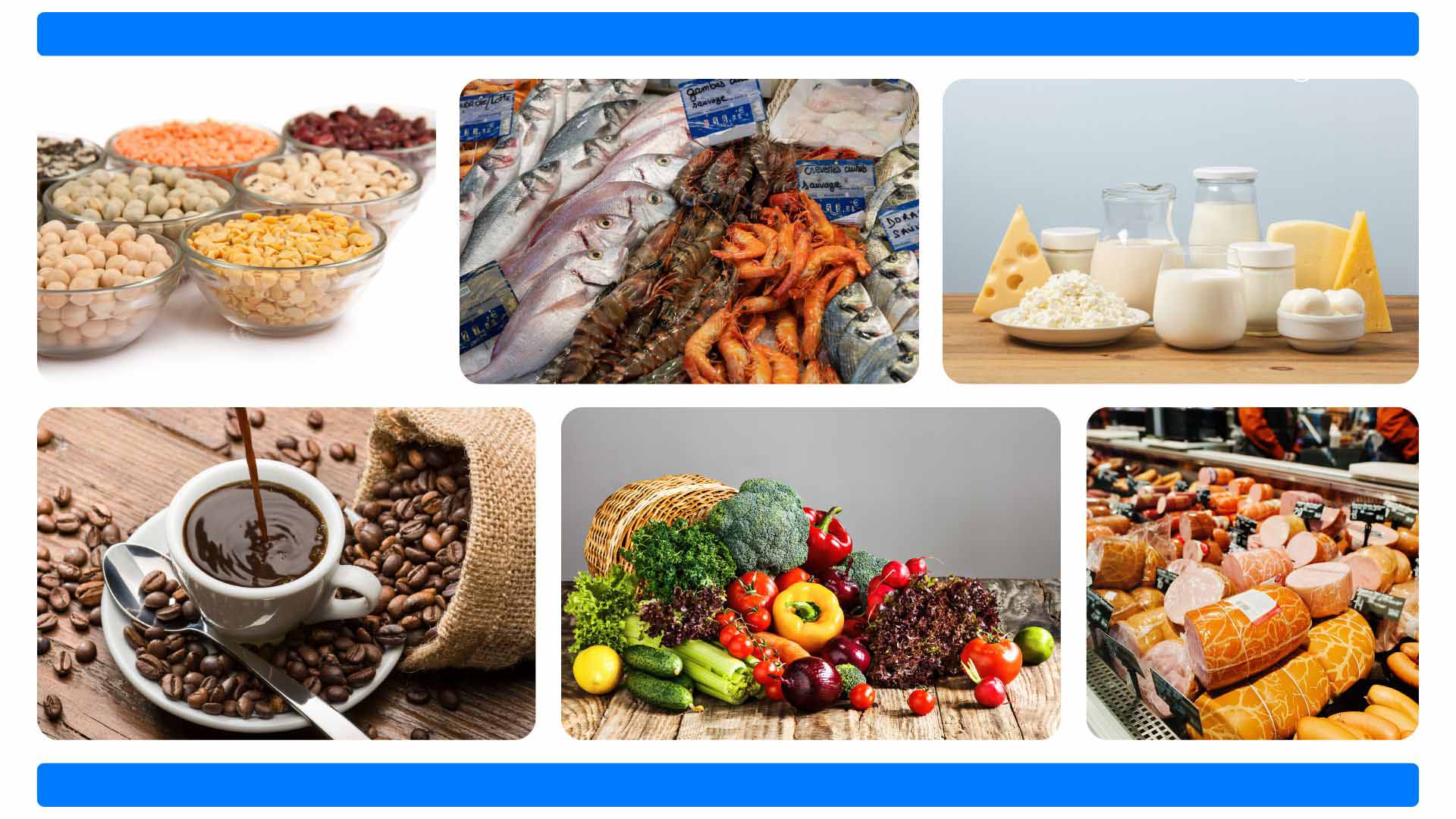QR Codes for Agro Exports: Ensuring Food Traceability & Authenticity

The global demand for safe, traceable, and authentic agricultural products has led to the widespread adoption of QR code technology in agro exports. As consumers and regulatory bodies push for greater transparency in food production and distribution, QR codes have emerged as a reliable tool for ensuring traceability, authentication, and compliance in agro supply chain.
Let's see how QR codes are transforming the agro-export industry, the benefits for producers, exporters, and consumers, and how businesses can implement effective QR code-based traceability solutions.
Why Food Traceability & Authenticity Matter in Agro Exports
Food traceability and authenticity are critical in agriculture and agro-processing industries due to:
- Stricter Global Regulations – Countries like the U.S. (FDA’s FSMA), EU (Farm to Fork Strategy), and Japan require detailed product traceability.
- Rising Consumer Demand – Modern consumers seek transparency in food origins, production methods, and sustainability practices.
- Combating Counterfeit Agro Products – Fake organic labels and misrepresentation of origin, certifications, and quality harm brand reputation.
- Improved Crisis Management – Quick recalls in case of contamination reduce financial and reputational damage.
- Market Access & Brand Trust – Exporters gain competitive advantage by providing verifiable product information.
Read more on Geofencing for Enhanced Product Authenticity and Provenance

How QR Codes Enhance Agro Export Traceability
1. Farm-to-Fork Transparency
- QR codes link to detailed product histories, allowing consumers and authorities to track the product’s journey from farm to table.
- Information accessible via QR codes:
- Origin details (farm name, location, and cultivation methods).
- Certifications (organic, pesticide-free, non-GMO, fair trade).
- Processing & packaging information (batch numbers, expiry dates).
- Sustainability initiatives (carbon footprint, water usage, ethical sourcing).
2. Combating Food Fraud & Counterfeiting
- Exported products are often targeted by fraudsters who mislabel produce or mix substandard goods with authentic ones.
- Smart QR codes prevent counterfeiting by enabling:
- Tamper-proof serialization for product authentication.
- Real-time verification via secure blockchain integration.
- Automated alerts for suspicious scans or duplicate codes.
3. Compliance with Global Agro Export Regulations
- Many countries have strict food safety laws requiring traceability systems to manage foodborne illness outbreaks.
- QR codes ensure compliance with:
- FDA’s Food Safety Modernization Act (FSMA) in the U.S.
- European Union’s Farm-to-Fork Strategy
- Japan’s Positive List System for Agricultural Chemicals.
- India’s APEDA traceability requirements for organic & spice exports.
4. Simplifying Recall Management
- Rapid response in case of contamination or safety issues.
- QR codes allow authorities to:
- Identify affected batches instantly.
- Notify consumers & supply chain partners.
- Reduce financial losses & reputational damage.
5. Enhancing Consumer Trust & Brand Loyalty
- Buyers and consumers can scan a QR code to verify:
- Product authenticity.
- Ethical & environmental compliance.
- Direct links to farmers & producers (boosting brand transparency).
- Encourages repeat purchases & premium pricing for trusted brands.

Implementation: How Agro Exporters Can Use QR Codes
1. Smart Packaging with Secure QR Codes
- Generate unique, tamper-proof QR codes for each batch.
- Print them on product labels, cartons, or packaging materials.
2. Cloud-Based Traceability Systems
- Store product journey data in secure cloud platforms.
- Allow exporters to update product information dynamically.
3. Blockchain Integration for Secure Data Sharing
- Prevents data manipulation & fraud.
- Ensures a decentralized, verifiable record of transactions.
4. Mobile App & Consumer Engagement
- Customers scan QR codes for:
- Instant authentication of origin & quality.
- Sustainability reports for responsible consumption.
- Feedback submission & reward programs (e.g., loyalty points for scanning).

Industries Benefiting from QR Code Traceability in Agro Exports
1. Organic Produce & Superfoods
- Certifying organic compliance and pesticide-free status.
2. Coffee, Tea & Spices
- Ensuring fair trade & ethical sourcing validation.
3. Dairy & Meat Exports
- Monitoring cold-chain compliance & freshness.
4. Seafood & Fisheries
- Combatting mislabeling & overfishing concerns.
5. Grains & Pulses
- Tracking moisture levels, fumigation status, & origin details
With growing concerns over food safety, sustainability, and counterfeiting, QR code-based traceability systems have become a necessity in agro exports. By ensuring end-to-end product authentication, meeting global compliance standards, and enhancing consumer trust, QR codes are revolutionizing the agricultural export industry.
For exporters looking to protect their brand, comply with global standards, and increase consumer engagement, Acviss provides smart traceability solutions powered by secure QR codes, blockchain, and AI-driven authentication.
💡 Want to secure your agro exports with next-gen QR code solutions? Get in touch with Acviss today! 🚀

FAQs
1. Why are QR codes important for agro exports?
QR codes enable farm-to-fork traceability, helping exporters comply with global food safety regulations, prevent counterfeiting, and enhance consumer trust by providing detailed product information.
2. How do QR codes help in combating counterfeit agro products?
Each QR code is unique and tamper-proof, allowing consumers and authorities to instantly verify product authenticity and origin. Counterfeiters cannot replicate or alter these codes without detection.
3. Can QR codes improve supply chain efficiency for agro exports?
Yes, QR codes streamline logistics by enabling real-time tracking of shipments, reducing manual errors, and ensuring better inventory and recall management.
4. What kind of information can be stored in a QR code for agro exports?
QR codes can store:
- Product origin (farm location, farmer details).
- Certifications (organic, non-GMO, fair trade).
- Processing & packaging details (batch numbers, expiry dates).
- Cold-chain compliance (for dairy, seafood, and meat exports).
- Sustainability & ethical sourcing practices.
5. Are QR codes mandatory for agro exports?
While not mandatory in all countries, many global regulations (e.g., FDA’s FSMA, EU Farm-to-Fork Strategy, Japan’s Positive List) require traceability systems. QR codes help exporters meet these compliance needs efficiently.
6. How do QR codes support product recalls in case of contamination?
If a batch is found to be contaminated or defective, QR codes allow instant identification of affected products, enabling quick recalls without disrupting the entire supply chain.
7. Can QR codes be integrated with blockchain for agro exports?
Yes, blockchain-secured QR codes enhance traceability by ensuring tamper-proof, verifiable records of a product’s journey, reducing fraud and improving transparency.
8. How can farmers and exporters benefit from using QR codes?
- Farmers gain direct market access and better pricing for verified, high-quality produce.
- Exporters build brand credibility, meet global compliance, and prevent counterfeiting.
9. How do consumers benefit from QR-coded agro products?
By scanning QR codes, consumers can verify authenticity, understand farming practices, ensure sustainability compliance, and make informed purchase decisions.
10. How can businesses implement QR codes for agro exports?
Businesses can:
- Print QR codes on packaging and export labels.
- Use cloud-based traceability platforms for real-time updates.
- Integrate blockchain technology for security.
- Educate consumers on how to scan and verify authenticity.
💡 Looking to secure your agro exports with QR code-based traceability?
Contact Acviss today for cutting-edge anti-counterfeiting and authentication solutions! 🚀